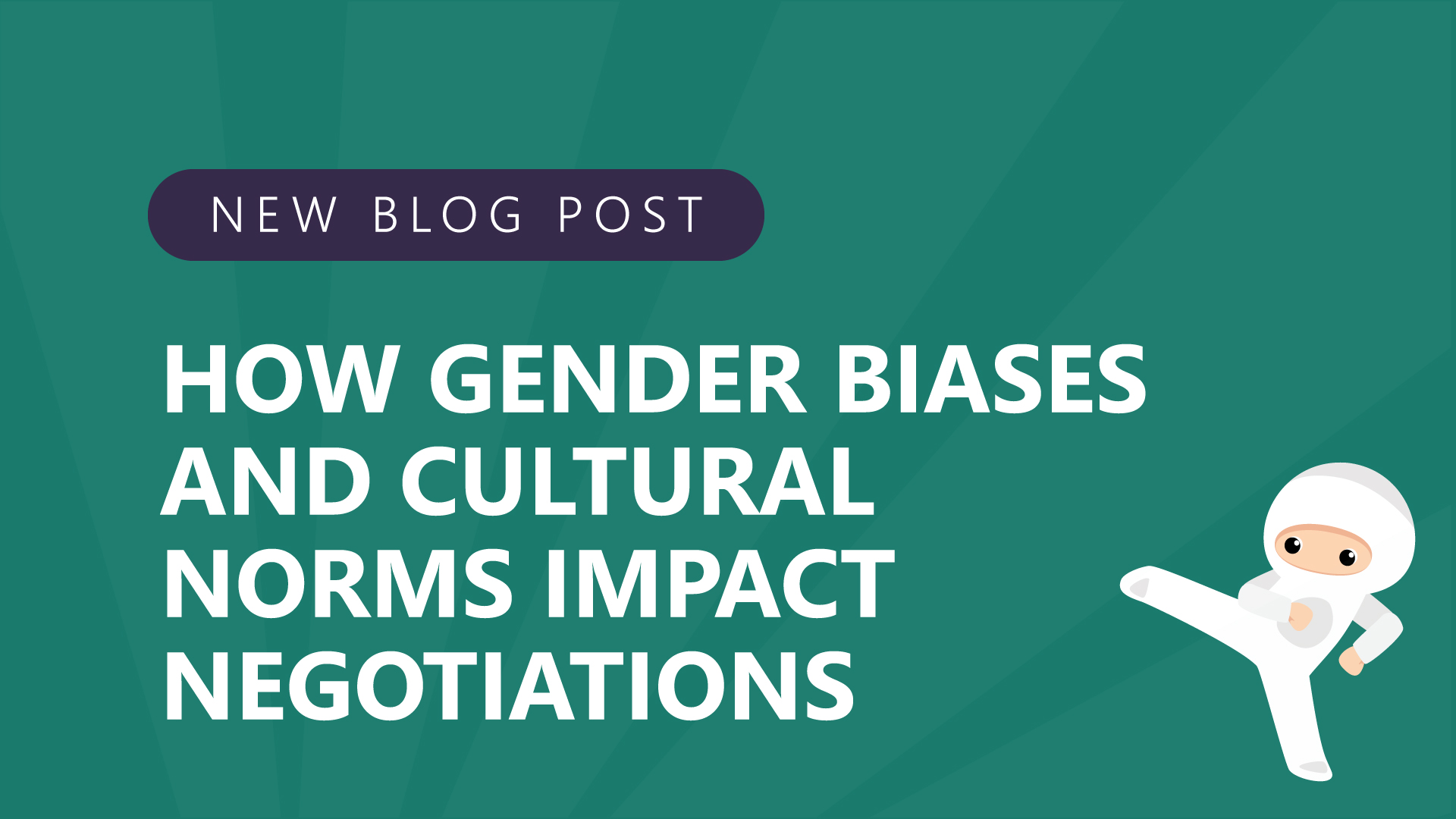Suzanne is a Professor of Management & Conflict Resolution at George Mason University. She’s also taught at IMD in Switzerland and Seattle University. She’s had the opportunity to teach on six continents.
And throughout her years as a consultant, professor, and advisor, she’s witnessed how gender biases and cultural biases impact one’s ability to negotiate. It’s time to question what unconscious biases are impacting your negotiations.
How gender biases change perceptions
Suzanne points out that women own their own businesses at a rate of 50%, but they only have 2.3% of the available venture capital. When angel investors ask male entrepreneurs questions, they tend to be about business growth, projections, etc. But when they ask women questions, they’re about balancing their careers with their families. Unconscious biases play out in the questions they choose to ask.
Suzanne does a lot of negotiation consulting with women and mixed groups. She emphasizes that if we help women in organizations amplify their voices and go into negotiations confidently, they represent themselves and their companies more effectively. But if a woman feels like she’s backed into a corner and winds up in a less than amenable agreement, she can put her own company’s production schedule in jeopardy.
And if a woman is hired at 15% less than her other coworkers because she was too afraid to negotiate her salary, when she finds out, she’ll feel demoralized. She will end up leaving and her position will take—on average—a year to fill and cost the company just as much as her salary. That’s why Suzanne firmly believes that we need to look at helping everyone in an organization be more effective regardless of gender. And it’s why Suzanne offers workshops.
The premise of Suzanne’s transformative workshops
Suzanne developed a questionnaire to help you come to terms with the habits you have that you may not recognize stand in your way. One of the statements is, “If I don’t get close to what I’m asking for, I walk away.” Many women answer “false.” Or, “I take the time to establish my credibility, my achievements, my background, my degree, etc., before starting a negotiation.” Women are far less likely to do that.
So Suzanne starts by looking at the habits and fears that cause you to accept what’s given without question. Through a series of activities and exercises that are intense, women start to change their behaviors and see that it’s easier than they thought it would be.
Suzanne asks the women she works with to roleplay an issue they’re dealing with in their life or workplace. By the end of the exercise, almost every woman says, “Wow, this wasn’t as hard as I thought this would be. Why didn’t I do this sooner?” Roleplay is powerful and empowering.
Food for thought: Do you have an unconscious bias in the way that you ask questions? Does it affect the way the conversation moves?
Learn more from Suzanne in episode #297 of the Negotiations Ninja podcast!

